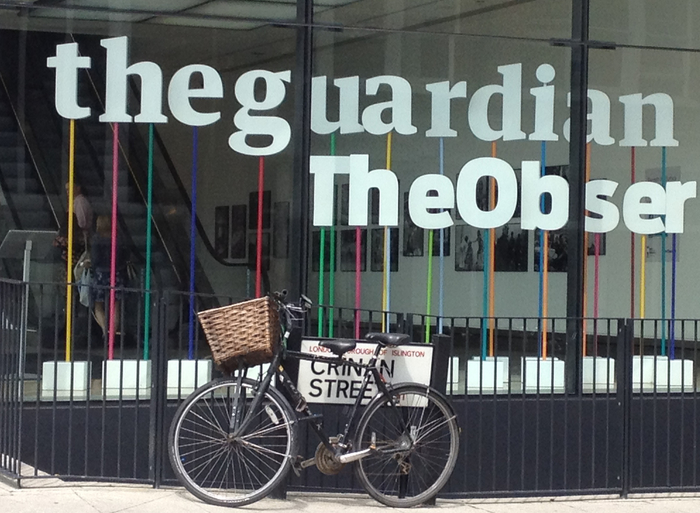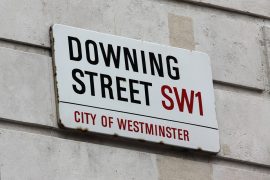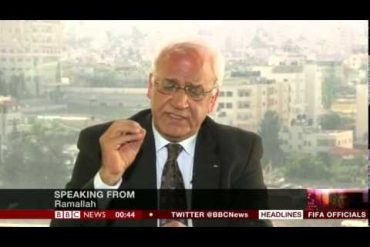For the fourth time in the past year, the Guardian has published an attack on the internationally accepted IHRA Working Definition of Antisemitism. The latest is an op-ed by David Feldman, director of the Birkbeck Institute for the Study of Antisemitism (“What we are getting wrong in the fight against antisemitism in Britain”, Feb. 18).
The attack on IHRA by Feldman, who was Vice Chair of the widely discredited 2016 Chakrabarti inquiry into Labour Party antisemitism, is largely unproblematic until the final three paragraphs, beginning with this:
the preoccupation of the government and Jewish communal bodies with the IHRA working definition is counter-productive. The working definition has become tainted by its repeated abuse. Too often it is used to tarnish opinions that are deeply unwelcome to most Israel-supporting Jews, but which are not antisemitic. It leads many to argue that the IHRA working definition is more a device to protect Israel from criticism than a device to protect Jews from antisemitism.
Here Feldman normalises what’s known as the Livingstone Formulation, a term coined by Professor David Hirsh to describe the smear that Jews level false charges of antisemitism in order to stifle criticism of Israel and “mobilize Jewish victim power against the Palestinians”. It’s a toxic trope that has continually been used and legitimised by both the BBC and the Guardian, despite the fact that the 2020 report by the Equality and Human Rights Commission (EHRC) on Labour antisemitism in effect concluded that it’s a racist line of attack.
Feldman’s assault on IHRA continues:
In the face of this scepticism, the Jerusalem Declaration on Antisemitism, published a year ago (and to which I contributed) can make a valuable contribution. The declaration provides clarity on when criticism of Israel and anti-Zionism lapses into antisemitism, and it aligns the struggle against antisemitism with anti-racism more broadly. It was developed by a group of leading scholars and meets a growing challenge: to provide clear guidance on how to identify and fight antisemitism while protecting free expression. Despite being anathematised by those who would like the IHRA working definition to enjoy a monopoly position, the Jerusalem Declaration can contribute to building the widest possible coalition against antisemitism.
It’s telling that Feldman doesn’t explain any of the substantive differences between the Jerusalem Declaration on Antisemitism and the IHRA definition.
As CST’s Director of Policy Dr. Dave Rich (author of ‘The Left’s Jewish Problem: Jeremy Corbyn, Israel and Antisemitism) explained, the Jerusalem Declaration – written by 200 academics without consultations with the Jewish community – is a deeply flawed document that sets back efforts to combat anti-Jewish racism. You should read Rich’s full response, but one of the more egregious differences, he notes, is that IHRA’s warning against comparing Israel to Nazi Germany has been removed. Also, whilst IHRA says it could be antisemitic to deny the Jewish people their right to self-determination, the Jerusalem Declaration says that it is not, in fact, antisemitic to call for the world’s only Jewish state to disappear.
Rich argues that the academics who wrote and signed the Jerusalem Declaration were responding to an environment in which “the IHRA definition has been…misrepresented as silencing all criticism of…Israel”.
The belief, he adds, that the IHRA definition has “a chilling effect on pro-Palestinian activism is so widespread that opposition to it has become totemic for many opponents of Israel”. Indeed, as we’ve demonsrated in posts over the past year, critiques of IHRA published in the Guardian have generally focused on the definition’s alleged impact in “censoring Palestinian voices”.
And, this gets to the heart of why the debate about IHRA on the Guardian-Left is so pernicious.
It not only rejects the “Macpherson Principle”, originating from the official report into the 1993 racist murder of Stephen Lawrence, which concluded that “a racist incident is any incident which is perceived to be racist by the victim or any other person”, but represents something closer to its opposite: It perversely prioritises the opinions and sensitivities of Palestinians – who are, lets remember, based on polling, the most antisemitic population in the world – over that of Jews in the conversation about how to define anti-Jewish racism.

If those critical of IHRA’s codification of Nazi analogies and calls for Israel’s annihilation as possible examples of antisemitism want to debate those points, then, by all means, let’s have that conversation. But, any serious examination on such weighty matters should (particularly amidst a global surge in antisemitism!) certainly give precedence to the views of vulnerable Jewish communities and their representatives over those of a non-Jewish population disproportionately prone to accepting the crudest expressions of Jew hatred.
Related Posts
- In defence of the IHRA Working Definition of Antisemitism (Fathom Journal)





